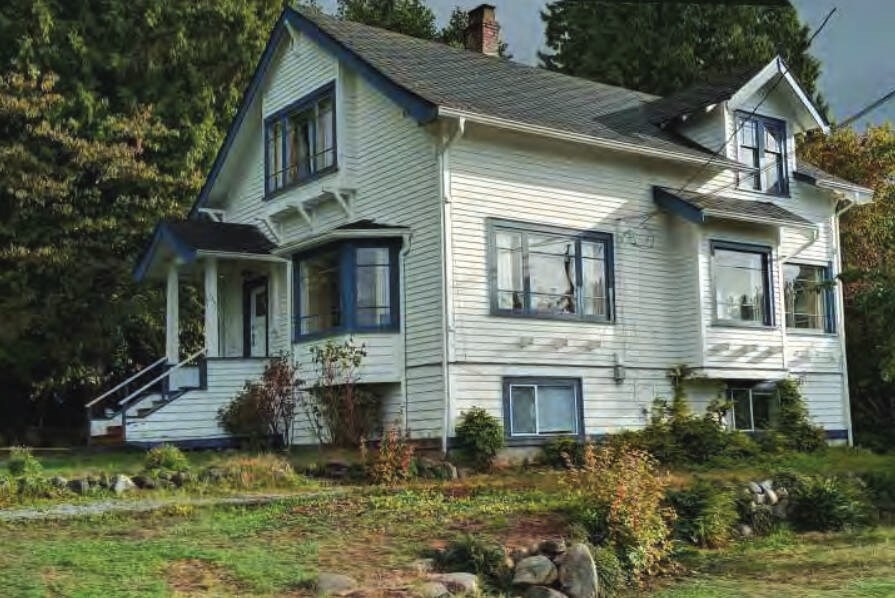A proposal to preserve West Vancouver’s Clegg House and add it the district’s community heritage registry in exchange for subdividing the existing lot and building another home as well as a coach house and stratified garden suite on the land will go to a public hearing later in October.
A proposed heritage revitalization agreement for the property at 1591 Haywood Avenue – essentially allowing extra density in exchange for preserving a heritage home – came forward for consideration by West Vancouver council Sept. 25.
Council’s biggest questions weren’t about the project itself, however, but about a request for a 20-year tax exemption requested by the property owners.
The 970-square-foot Clegg House, a Craftsman style home built in 1929, sits on a large third-of-an-acre corner lot at the intersection of West Vancouver’s 16th Street and Haywood Avenue. The home is one of the first built in the neighbourhood, as part of a 1912 subdivision, by immigrant farmer Warren Clegg, who bought two lots for less than $900, according to historical records.
The Clegg House currently sits in the middle of the property, and although the land is large enough to subdivide, the presence of Vinson Creek in one corner of the property restricts the buildable area, according to a staff report.
Under the proposed heritage revitalization agreement, the Clegg House would be moved south on the property to allow subdivision of the land. A new home and detached garage would then be built on the north lot while another garage with a coach house above it would be added to the south lot between the Clegg House and the new home. A stratified basement suite would also be added to the Clegg House, which would involve increasing the height of the house to accommodate nine-foot ceilings in the suite.

There have only been six heritage revitalization agreements completed in West Vancouver so far.
But the unusual request for a 20-year tax holiday – estimated at a value of about $96,000 – appeared to catch most of council’s attention on Monday.
The community charter allows municipal councils to exempt heritage-designated properties from taxation, but it requires a vote of two-thirds of council.
In response to questions from council, staff confirmed no similar tax exemptions have been requested or given out before to owners of heritage properties.
“So why would we grant this project a tax exemption?” asked Coun. Christine Cassidy.
Owner Darrin DeCosta addressed council, telling them costs of preserving a heritage house are considerably higher than simply building a new home on the property. The cost of bringing services and utilities to the property under a heritage revitalization agreement are substantial, he said.
But Couns. Cassidy and Peter Lambur said the heritage revitalization agreement would already come with built-in financial benefits to the owners in the form of increased density and exemption from community amenity contributions. Cassidy added she didn’t like the precedent-setting nature of a tax exemption.
The public will have a chance to comment on the proposal at a public hearing Oct. 23.



